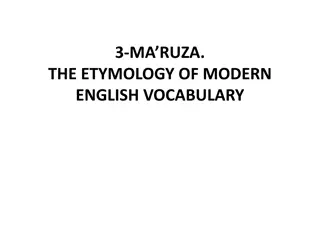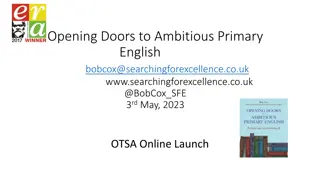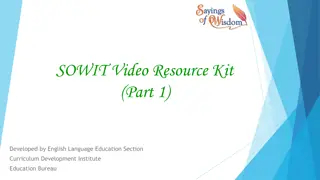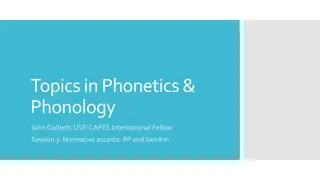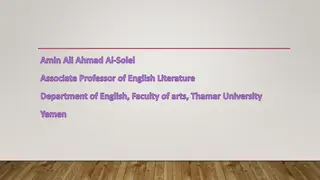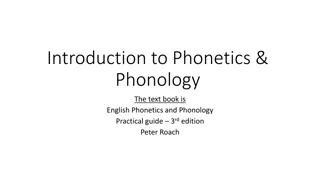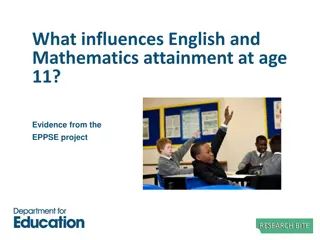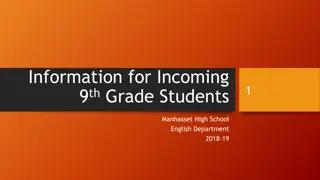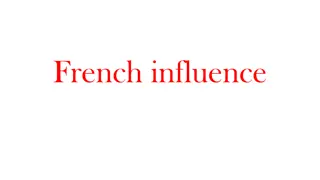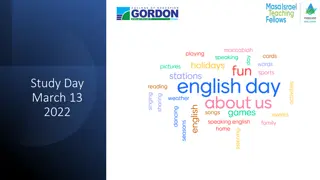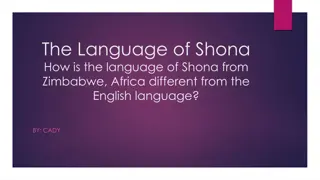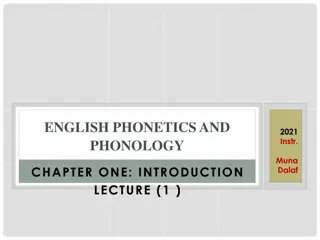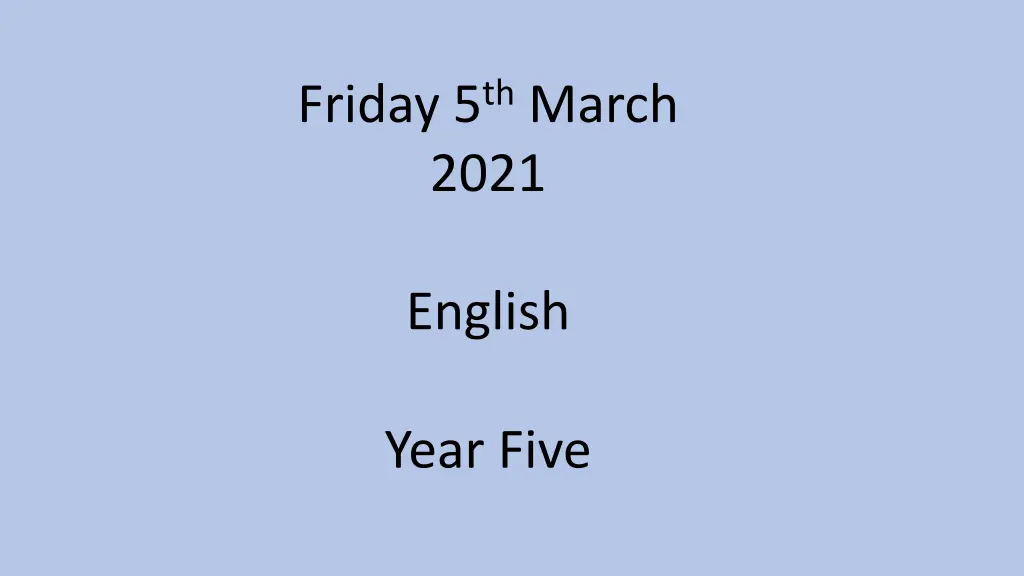
Mastering Writing: Understanding Sentence Structure and Punctuation
Learn how to craft clear and effective sentences by understanding the importance of sentence structure and punctuation. Dive into the basics of forming complete ideas, identifying verbs, and utilizing conjunctions to enhance your writing skills. Practice turning incomplete phrases into full sentences and perfect your writing with this comprehensive guide.
Download Presentation

Please find below an Image/Link to download the presentation.
The content on the website is provided AS IS for your information and personal use only. It may not be sold, licensed, or shared on other websites without obtaining consent from the author. If you encounter any issues during the download, it is possible that the publisher has removed the file from their server.
You are allowed to download the files provided on this website for personal or commercial use, subject to the condition that they are used lawfully. All files are the property of their respective owners.
The content on the website is provided AS IS for your information and personal use only. It may not be sold, licensed, or shared on other websites without obtaining consent from the author.
E N D
Presentation Transcript
Friday 5th March 2021 English Year Five
Sentences provide us with a framework to express our ideas clearly in writing. We must always aim to write in complete sentences which are correctly punctuated. Sentences always begin with a capital letter and end with either a full stop, an exclamation mark or a question mark. A sentence always contains a verb, expresses a complete idea and makes sense standing alone. Which of the following are sentences and which are not? How would you turn those that are not into sentences? I like cycle. Jamil reads books. When the doorbell rang. The delicious was eaten quickly. Frog live in water Dunno!
Each sentence that we write must contain a complete idea. A simple sentence has oneclause which means that it has one verb and, therefore, one idea before the end punctuation. The lion roared. The lion roared at the small cub. On the hill top, the lion roared ferociously at the small cub. Use the verbs in the writing below to help you identify each complete idea and decide where the punctuation should go. Click to check your answer. Athens is one of the oldest of all cities it is home to one of the world s most famous buildings the white marble temple, the Parthenon, sits on a hill right in the centre of the city it can be seen for miles around.
Each sentence that we write must contain a complete idea. A simple sentence has oneclause which means that it has one verb and, therefore, one idea before the end punctuation. The lion roared. The lion roared at the small cub. On the hill top, the lion roared ferociously at the small cub. Use the verbs in the writing below to help you identify each complete idea and decide where the punctuation should go. Click to check your answer. Athens is one of the oldest of all cities. It is home to one of the world s most famous buildings. The white marble temple, the Parthenon, sits on a hill right in the centre of the city. It can be seen for miles around.
A sentence with two ideas must include two clauses,which means that it has two verbs. We must then use a conjunction to join the clauses before the end punctuation. The lion roared ferociously at the cub as the sun set over the Serengeti. As the sun set over the Serengeti, the lion roared ferociously at the cub. In the heat of the day, the lion roared and sought shelter under a tree. Decide where the punctuation should go in the writing below by identifying where the verbs and conjunctions are. Click to check your answer. Athens has very hot summers and the temperature can reach 31 in July and August Athenians tend to stay out late at night when it is cooler nobody eats before 9pm so many entertainments do not start until midnight!
A sentence with two ideas must include two clauses,which means that it has two verbs. We must then use a conjunction to join the clauses before the end punctuation. The lion roared ferociously at the cub as the sun set over the Serengeti. As the sun set over the Serengeti, the lion roared ferociously at the cub. In the heat of the day, the lion roared and sought shelter under a tree. Decide where the punctuation should go in the writing below by identifying where the verbs and conjunctions are. Click to check your answer. Athens has very hot summers and the temperature can reach 31 in July and August. Athenians tend to go out later at night when it is cooler. Nobody eats before 9pm so many entertainments do not start until midnight!
Here is an example of a sentence which has three ideas. Can you see how the three verbs are linked by a conjunction and a relative pronoun before the end punctuation? Proud, the lion surveyed his territory and gave a fearsome roar to all those who might dare to challenge it. Decide where the punctuation should go in the writing below by identifying where the verbs, conjunctions and relative pronouns are. Click to check your answer. When visitors come to modern Athens, they are surprised by the lively, busy place that they find huge traffic jams clog the city s streets and air pollution causes a thick smog which obscures the view.
Here is an example of a sentence which has three ideas. Can you see how the three verbs are linked by a conjunction and a relative pronoun before the end punctuation? Proud, the lion surveyed his territory and gave a fearsome roar to all those who might dare to challenge it. Decide where the punctuation should go in the writing below by identifying where the verbs, conjunctions and relative pronouns are. Click to check your answer. When visitors come to modern Athens, they are surprised by the lively, busy place that they find. Huge traffic jams clog the city s streets and air pollution causes a thick smog, which obscures the view.
Sentence composition your turn Combine each set of information into a single, correctly punctuated sentence using conjunctions and relative clauses to link your ideas. The traveller slept. He was very tired. He had journeyed far. He dreamed of a warm fire. He slept for a year and a day. The children played on the beach. The sun shone high in the sky. The beach was crowded. They found crabs in the rock pools. As the very tired traveller, who had journeyed far, slept for a year and a day, he dreamed of a warm fire. While the sun shone high in the sky, the children played on the crowded beach where they found crabs in the rock pools.
When we write grammatically correct sentences, we must also ensure that we use Standard English. We must choose the verb form which matches the subject in our sentence - think carefully about whether the subject is singular or plural. Watch out for the past tense! We was on our way to the park. X Bees lives in hives. She done it yesterday. X We were on our way to the park. Bees live in hives. She did it yesterday. X Explain why the verb forms in the following sentences are wrong and correct them. The class were dressed as elves. They was definitely guilty. The team are in trouble. The dogs growls at the cat. I seen the waltzer at the fair. Badgers lives underground.
When we write grammatically correct sentences, we must also ensure that we use Standard English. We must choose the verb form which matches the subject in our sentence - think carefully about whether the subject is singular or plural. Watch out for the past tense! We was on our way to the park. X Bees lives in hives. She done it yesterday. X We were on our way to the park. Bees live in hives. She did it yesterday. X Explain why the verb forms in the following sentences are wrong and correct them. The class was dressed as elves. The dogs growl at the cat. They were definitely guilty. I saw/have seen the waltzer at the fair. The team is in trouble. Badgers live underground.
Here are some other Standard English traps that we must be careful not to fall into when we are writing grammatically correct sentences. have not of : He could of jumped to escape. X He could have jumped to escape. adverb or adjective: The boy did good with his plan. X The boy did well with his plan. posh voice : He ran till he could run no more. X He ran until he could run no more. a or an : He travelled for a hour. X He travelled for an hour.
Explain why the following sentences are wrong and correct them so that they use Standard English. 1. The shoal of fish were fleeing from the shark. 2. When he finally reached the end of his journey, he was pleased to find that his sister was ok. 3. Fixing a engine is a complicated process. 4. Even though it had seemed light enough, she knew immediately that she shouldn t of come down the alleyway. 5. The teacher was real worried when she couldn t find the missing pupil. 6. As the lightning come nearer, all the creatures of the forest scampered for shelter.
Explain why the following sentences are wrong and correct them so that they use Standard English. 1. The shoal of fish was fleeing from the shark. (singular subject) 2. When he finally reached the end of his journey, he was pleased to find that his sister was alive and well. (slang/ posh voice) 3. Fixing an engine is a complicated process. (a/an) 4. Even though it had seemed light enough, she knew immediately that she shouldn t have come down the alleyway. (of/ have) 5. The teacher was really worried when she couldn t find the missing pupil. (adverb/ adjective confusion) 6. As the lightning came nearer, all the creatures of the forest scampered for shelter. (tense confusion)
One of the most essential elements for a grammatically correct sentence is accurate punctuation. Capital letters, full stops, exclamation marks and question marks must always be used correctly. Add the basic punctuation to the extract below. it was a grim, wintery tuesday all he could see out of the window was fog, fog and more fog it surrounded the house like a serpent coiling around its prey, waiting for the best moment to inflict its deadly blow well it already had thanks to that swirling murk, he wasn t going to be able to go out with his grandfather one last time on the boat before it was shut up for the winter why was life so unfair
One of the most essential elements for a grammatically correct sentence is accurate punctuation. Capital letters, full stops, exclamation marks and question marks must always be used correctly. Add the basic punctuation to the extract below. It was a grim, wintery Tuesday. All he could see out of the window was fog, fog and more fog. It surrounded the house like a serpent coiling around its prey, waiting for the best moment to inflict its deadly blow. Well it already had! Thanks to that swirling murk, he wasn t going to be able to go out with his grandfather one last time on the boat before it was shut up for the winter. Why was life so unfair?
Commas can be a trickier piece of punctuationto get right. Lets look at the main functions for commas and some correct examples. to separate items in a list: He grabbed his coat, slipped on his shoes and made for the door. after a fronted adverbial: Above him, the clouds scudded gracefully through the sky. to separate a subordinate clause which comes at the beginning of a sentence: While the drama unfolded, Ella kept herself well-hidden from view. for parenthesis (additional information): Paris, which is the capital of France, has a population of over two million.
Add any missing commas into the following sentences so that the punctuation is correct. Explain their function. 1. As he ran through the forest brambles grabbed at his shins. 2. They sheltered under the gnarled old tree while they waited for the rain to pass. 3. It seemed to them that the new headmaster who had eyes which seemed to bore into the soul was going to be extremely difficult to trick. 4. Lava erupted out of the crater flowed in a river down the sides and pooled in sticky puddles at the bottom. 5. The hiding place marked carefully on the map by Uncle Sam still seemed such a long way off.
Add any missing commas into the following sentences so that the punctuation is correct. Explain their function. 1. As he ran through the forest, brambles grabbed at his shins. (to separate the subordinate clause) 2. They sheltered under the gnarled, old tree while they waited for the rain to pass. (to separate the items in a list) 3. It seemed to them that the new headmaster, who had eyes which seemed to bore into the soul, was going to be extremely difficult to trick. (for parenthesis) 4. Lava erupted out of the crater, flowed in a river down the sides and pooled in sticky puddles at the bottom. (to separate the items in a list) 5. The hiding place, marked carefully on the map by Uncle Sam, still seemed such a long way off. (for parenthesis)
Plenary To ensure your sentences are grammatically correct: Consider how many ideas your sentence contains. If it has more than one idea (and verb), then you will need a conjunction or a relative pronoun to link each of those ideas before the end punctuation. Use Standard English in your writing watch out for verb forms and use your posh voice . Make sure that your basic punctuation is accurate capital letters, full stops, exclamation marks and question marks are essential. If you need to use a comma, make sure that you can explain its function. If your comma does not follow one of the rules, then it is probably not in the right place!
Remote Learning Tracker https://forms.office.com/Pages/ResponsePage .aspx?id=eCY4lN73r0G0KV1rDWITzRhTQ2IZqp BOsW8cFVoooF9UNVlMS1dCVkdaM0k0WlhFT E9WVFBTWEg1Ti4u



